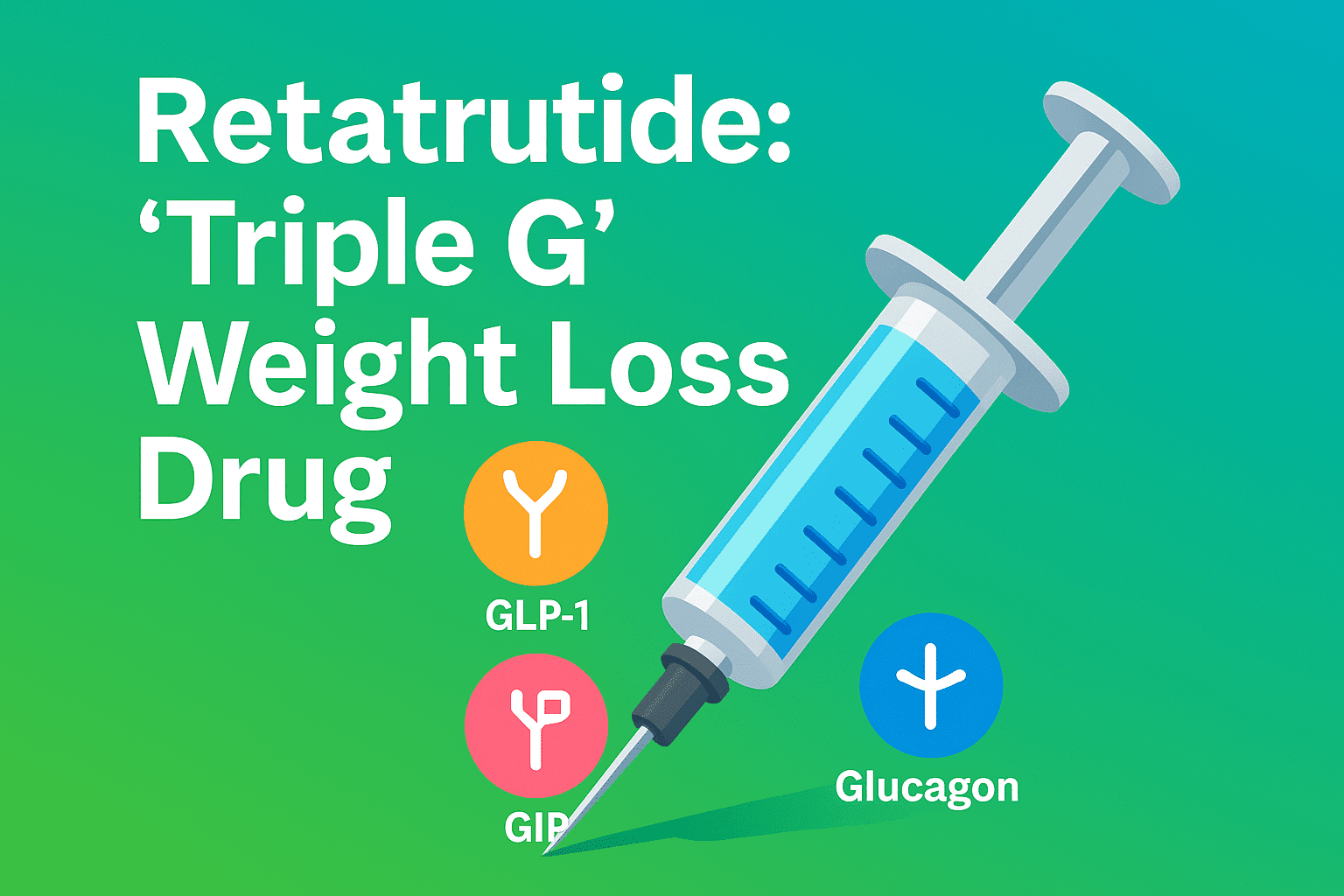Retatrutide is a promising experimental weight loss drug under development by Eli Lilly. Known as the “Triple G” drug, it mimics three hormones (GLP-1, GIP, and glucagon) to promote significant weight loss. Early studies show it outperforms existing FDA-approved drugs like Ozempic, helping patients lose up to 22% of their weight in 48 weeks. Retatrutide is still in Phase 3 trials, with FDA approval expected in the future.
Drug Type: Experimental weight loss drug; triple hormone receptor agonist (GLP-1, GIP, glucagon); nicknamed “triple G”.
Developer: Eli Lilly.
FDA Status: Not yet approved; Phase 3 trials ongoing; results expected in 2025 (earlier than previously estimated).
Mechanism:
- GLP-1: Suppresses appetite.
- GIP: Enhances insulin secretion.
- Glucagon: Regulates blood sugar, stimulates glucose production.
Weight Loss Efficacy:
- Up to 22% weight loss in 48 weeks (McGill study, 15,500 participants, 26 trials).
- Phase 2 trial: up to 24.2% weight loss at 48 weeks.
Comparison:
- Retatrutide > Tirzepatide (22.5% weight loss) > Semaglutide (13.9%).
Other Benefits: May improve blood pressure, early strong results plateauing over time.
Side Effects: Mostly mild gastrointestinal issues (nausea, diarrhea). 22 deaths reported in trials, but no direct link to the drug.
Next Steps: Phase 3 trials continue, including a 68-week study on obesity + osteoarthritis of the knee. FDA approval could come post-2025.



